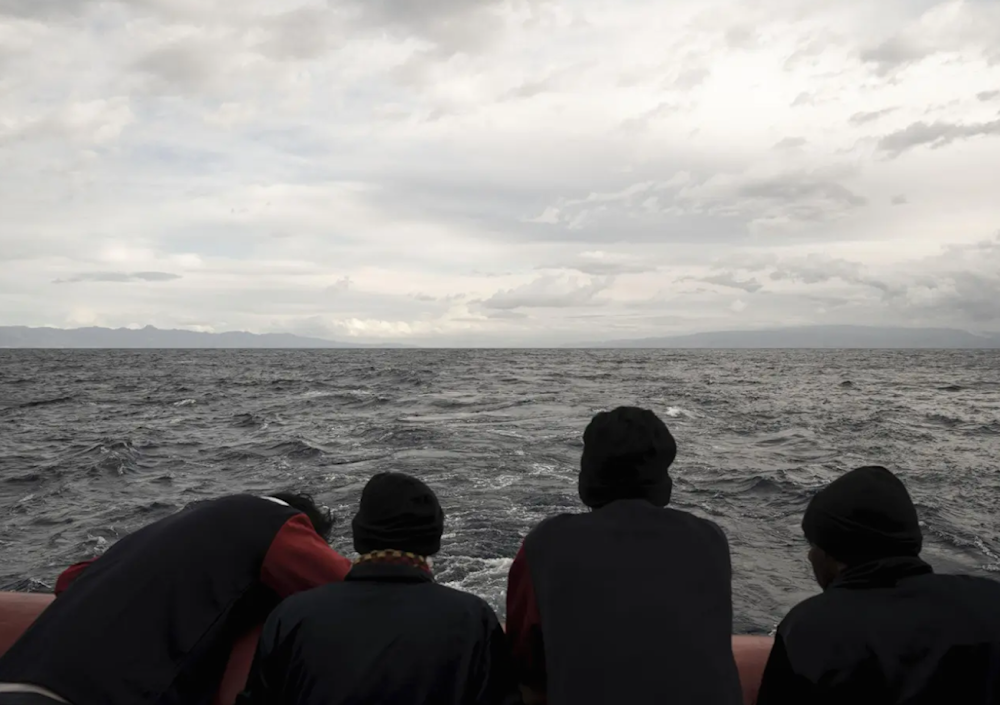Germany to halt funding for Mediterranean rescue missions
Germany’s decision draws strong criticism from opposition parties and humanitarian groups who warn the move will worsen the region’s humanitarian crisis.
-

Migrants stand on the deck of the Ocean Viking rescue ship in the Strait of Sicily in the Mediterranean Sea on November 5, 2022 (AP)
Germany’s conservative-led government will halt financial support for NGOs conducting migrant rescues in the Mediterranean, a Foreign Ministry source confirmed on Wednesday, a move that has drawn sharp criticism from opposition parties and humanitarian groups, warning of dire consequences.
"The federal government does not plan to provide further financial support to non-governmental organisations involved in civilian sea rescue," the source told AFP.
Under the previous coalition led by Foreign Minister Annalena Baerbock of the Greens, Berlin had provided significant funding to groups rescuing migrants attempting the dangerous crossing from North Africa to Europe, often in unseaworthy boats. In 2024, this included €2 million in support for organizations such as SOS Humanity and SOS Mediterranee. About €900,000 was distributed in the first quarter of this year alone.
Centre-right CDU reverses Greens' approach
However, the new government led by Chancellor Friedrich Merz and his centre-right CDU party, which came to power in May, has moved to cut that aid as part of a broader crackdown on irregular migration, aimed in part at curbing support for the far-right Alternative for Germany (AfD).
The decision has sparked political backlash, particularly from the Greens and the centre-left SPD, who had partnered in the previous government.
Green MP Britta Hasselmann criticized the decision as "disastrous", detailing how "the coalition is predictably exacerbating the humanitarian crisis in the Mediterranean and causing human suffering."
The move also risks straining relations with Italy, where many of the rescued migrants are taken ashore, a point of contention in recent EU migration debates.
Humanitarian groups say the funding cuts could limit their ability to save lives. Gorden Isler, chair of the NGO Sea-Eye, called the announcement a “catastrophic signal".
"The support allowed missions and saved lives. Now we might have to remain in port despite emergencies at sea."

 2 Min Read
2 Min Read










